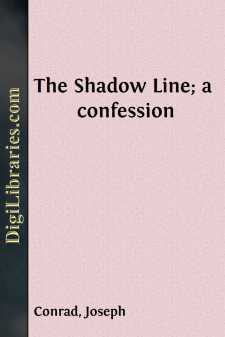Categories
- Antiques & Collectibles 13
- Architecture 36
- Art 48
- Bibles 22
- Biography & Autobiography 816
- Body, Mind & Spirit 145
- Business & Economics 28
- Children's Books 18
- Children's Fiction 14
- Computers 4
- Cooking 94
- Crafts & Hobbies 4
- Drama 346
- Education 58
- Family & Relationships 59
- Fiction 11831
- Foreign Language Study 3
- Games 19
- Gardening 17
- Health & Fitness 34
- History 1378
- House & Home 1
- Humor 147
- Juvenile Fiction 1873
- Juvenile Nonfiction 202
- Language Arts & Disciplines 89
- Law 16
- Literary Collections 686
- Literary Criticism 179
- Mathematics 13
- Medical 41
- Music 40
- Nature 179
- Non-Classifiable 1768
- Performing Arts 7
- Periodicals 1453
- Philosophy 66
- Photography 2
- Poetry 897
- Political Science 203
- Psychology 45
- Reference 154
- Religion 516
- Science 126
- Self-Help 86
- Social Science 82
- Sports & Recreation 34
- Study Aids 3
- Technology & Engineering 59
- Transportation 23
- Travel 463
- True Crime 29
Joseph Conrad
Joseph Conrad, born Józef Teodor Konrad Korzeniowski in 1857 in Poland, was a prominent British novelist known for his rich narrative style and profound exploration of the human psyche. His most famous works, such as "Heart of Darkness" and "Lord Jim," delve into themes of colonialism, morality, and existentialism. Despite English being his third language, Conrad's mastery of the language and innovative literary techniques have cemented his legacy as a central figure in modern literature.
Author's Books:
Sort by:
by:
Joseph Conrad
On my right hand there were lines of fishing stakes resembling a mysterious system of half-submerged bamboo fences, incomprehensible in its division of the domain of tropical fishes, and crazy of aspect as if abandoned forever by some nomad tribe of fishermen now gone to the other end of the ocean; for there was no sign of human habitation as far as the eye could reach. To the left a group of barren...
more...
by:
Joseph Conrad
PART I. THE MAN AND THE BRIG The shallow sea that foams and murmurs on the shores of the thousand islands, big and little, which make up the Malay Archipelago has been for centuries the scene of adventurous undertakings. The vices and the virtues of four nations have been displayed in the conquest of that region that even to this day has not been robbed of all the mystery and romance of its past—and...
more...
by:
Joseph Conrad
THE WARRIOR'S SOUL(1917) The old officer with long white moustaches gave rein to his indignation. "Is it possible that you youngsters should have no more sense than that! Some of you had better wipe the milk off your upper lip before you start to pass judgment on the few poor stragglers of a generation which has done and suffered not a little in its time." His hearers having expressed much...
more...
by:
Joseph Conrad
Several of us, all more or less connected with the sea, were dining in a small river-hostelry not more than thirty miles from London, and less than twenty from that shallow and dangerous puddle to which our coasting men give the grandiose name of "German Ocean." And through the wide windows we had a view of the Thames; an enfilading view down the Lower Hope Reach. But the dinner was execrable,...
more...
by:
Joseph Conrad
ALMAYER'S FOLLY I am informed that in criticizing that literature which preys on strange people and prowls in far-off countries, under the shade of palms, in the unsheltered glare of sunbeaten beaches, amongst honest cannibals and the more sophisticated pioneers of our glorious virtues, a lady—distinguished in the world of letters—summed up her disapproval of it by saying that the tales it...
more...
by:
Joseph Conrad
CHAPTER 1 He was an inch, perhaps two, under six feet, powerfully built, and he advanced straight at you with a slight stoop of the shoulders, head forward, and a fixed from-under stare which made you think of a charging bull. His voice was deep, loud, and his manner displayed a kind of dogged self-assertion which had nothing aggressive in it. It seemed a necessity, and it was directed apparently as...
more...
by:
Joseph Conrad
CHAPTER I Mr Verloc, going out in the morning, left his shop nominally in charge of his brother-in-law. It could be done, because there was very little business at any time, and practically none at all before the evening. Mr Verloc cared but little about his ostensible business. And, moreover, his wife was in charge of his brother-in-law. The shop was small, and so was the house. It was one of...
more...
by:
Joseph Conrad
KARAIN, A MEMORYIWe knew him in those unprotected days when we were content to hold in our hands our lives and our property. None of us, I believe, has any property now, and I hear that many, negligently, have lost their lives; but I am sure that the few who survive are not yet so dim-eyed as to miss in the befogged respectability of their newspapers the intelligence of various native risings in the...
more...
by:
Joseph Conrad
I Only the young have such moments. I don't mean the very young. No. The very young have, properly speaking, no moments. It is the privilege of early youth to live in advance of its days in all the beautiful continuity of hope which knows no pauses and no introspection. One closes behind one the little gate of mere boyishness—and enters an enchanted garden. Its very shades glow with promise....
more...
by:
Joseph Conrad
Young Powell and his Chance. I believe he had seen us out of the window coming off to dine in the dinghy of a fourteen-ton yawl belonging to Marlow my host and skipper. We helped the boy we had with us to haul the boat up on the landing-stage before we went up to the riverside inn, where we found our new acquaintance eating his dinner in dignified loneliness at the head of a long table, white and...
more...











